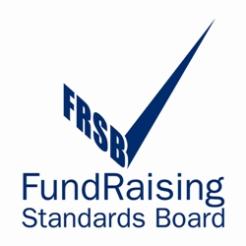The sector’s fundraising bodies must put aside their vested interests and find a way to build a single self-regulatory body covering all aspects of fundraising, Lord Hodgson has warned.
In his recommendations to the government on fundraising, Lord Hodgson said greater clarity was needed on the roles and remits of the Institute of Fundraising, FRSB, and PFRA in relation to self-regulation.
Effective self-regulation is preferable to statutory regulation, he said, but existing efforts by the sector have now plateaued and need new impetus. A “simple, donor-focused self-regulatory scheme with a single point of entry for the public” remains elusive.
“To date the sector has tended to dance around these issues; I believe strongly that it is now time to tackle them head-on,” Hodgson said. “All sides will need to work together much better and make concessions if self-regulation is to succeed.
“This is not an easy challenge, but if the sector fails to address it, self-regulation will ultimately fail.”
FRSB 'not enough members'
He said the FRSB had met nearly all of its 12 criteria, but the low number of charities signed up as members (fewer than 1,500 out of 45,000 estimated fundraising charities) is its greatest weakness.
In order for it to be a more proactive regulator, it needs to significantly expand its member base and grow its income.
However, Lord Hodgson ruled out making FRSB membership compulsory, for the time being anyway. Instead he mooted various levers that might increase membership, such as making it a condition of licensing charity collections and educating funders to check for FRSB membership. The Charity Commission must also develop a closer relationship with the FRSB to encourage more charities to join it.
Regulation of face-to-face is ‘patchy’
Lord Hodgson also finally put paid to Charities Act 2006 proposals for a new licensing regime for public charitable collections administered by the Charity Commission, admitting it would be “unaffordable” and may not be effective.
However, it is very important that non-cash face-to-face fundraising is brought clearly within the regulatory scheme – currently its inclusion is “patchy and subject to debate”, despite being an activity that “causes no little public irritation when done badly”.
That said, the local authority voluntary site agreements instigated by the PFRA for street fundraising seemed to work well in addressing some issues of frequency and behaviour, and local authorities should not be able to ban face-to-face at will.
Lord Hodgson concluded: “The FRSB and sector umbrella bodies, assisted by the Cabinet Office and Charity Commission, need to address the confused self-regulatory landscape, and agree a division of responsibilities which provides clarity to the public and removes duplication.”
Standing committee chaired by the Cabinet Office
A standing committee should be formed, chaired by the Cabinet Office and comprising the Charity Commission, FRSB and Institute of Fundraising, to drive forward changes and monitor progress. The PFRA, Charity Retail Association, and others should join for discussions around public charitable collections.
Within six months of accepting the recommendation, the sector must agree firm proposals to deliver the next stage of a "sector-funded, public-facing, central self-regulatory body covering all aspects of fundraising", he said.
The government should review the FRSB again in five years’ time, and the reserve power for government to regulate or require membership of the self-regulatory scheme “should remain a serious option if self-regulation stalls or fails to make sufficient progress”, Hodgson added.
FRSB reacts
The FRSB has responded to Lord Hodgson's report with chief executive Alistair McLean warmly welcoming the recommendations and agreeing that more collaboration between the FRSB, Institute of Fundraising and the PFRA is necessary:
"Lord Hodgson’s Review is a strong and positive step forward in ensuring the UK has a transparent and accountable charity sector underpinned by robust self-regulation, driving up standards and building public trust.
"The past five years have shown that there is a real appetite for self-regulation of fundraising, both within the charity sector and amongst the public. We welcome these new recommendations, which set out a clear path for strengthening the scheme, ensuring the public can give to the good causes they care about with confidence.
“The focus is on growing the sector’s commitment to self-regulation, with greater incentives for fundraising organisations to commit to the high standards required of FRSB membership and tighter sanctions for those that fail to comply. Establishing a Standing Committee to drive forward fundraising regulation is a key move that would accelerate change and ensure greater cohesion amongst regulators and trade bodies.
“The need to simplify the regulatory landscape for fundraising is clear and can only be achieved by more joined-up working with regulators within and beyond the sector, as well as the Institute of Fundraising as standards setter and the Public Fundraising Regulatory Association for face-to-face fundraising. We are committed to developing these relationships and will seek meetings with all relevant parties as soon as possible," said McLean









